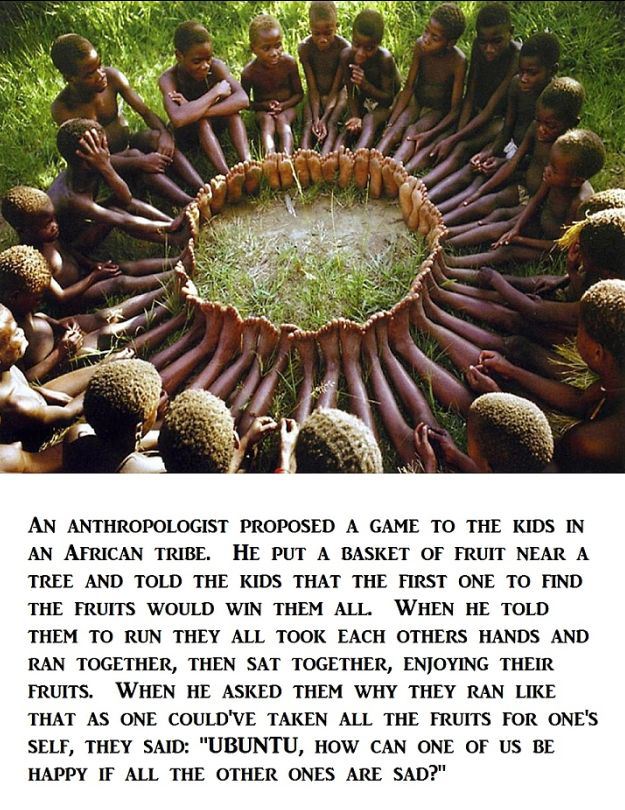
Photo: virtuesforlife.com
On 16 June 2015 I posted a Blog Calling all academic economists: Calling all academic economists: What are you teaching your students? Soon after this I had a very nice email from a young academic economist, at the beginning of his academic journey, full of enthusiasm, commitment and dreams.
He told me that he was very inspired and moved by my Blog. He, too, like me, he noted, sees teaching as a vocation and he had opted to become a university lecturer, believing that it is his mission in life to engage with students with life’s bigger questions, not just teaching them a bit of economics here and there with huge amount of mathematics, statistics and IT.
He then told me that he wishes to prepare a different module for his first year students, something that will make them stop and think about more important questions and aspects of life.
He then asked me if I can shed some light on this, sharing a bit more of what I think is important to teach and perhaps suggest a course that I, myself, would have liked to teach my own first year students, if I was still teaching.
I was so excited and happy to hear from him. What an honourable young man.
I began my research, composing my thoughts and getting things together. I then came across a Blog “Ubuntu Education: Nelson Mandela’s Lasting Legacy” which I had written on 31 December 2013. There I had suggested a possible inspiring economics module.
I then emailed back the young academic. He was very appreciative and excited about the possibility of offering such a module, hoping that the majority of “orthodox” forces at his school would not put a spanner in his works, a fact that I remember very clearly myself, looking back all those years ago.
I hope he will succeed. I wish him and other “heterodox” academic economists well.
Below I have noted my suggested ECON 101 for all those who are thinking along the same lines.
ECON 101
A suggested first year module for all students majoring in economics
Ubuntu Economics: Economics for Meaning, Social Justice and the Common Good- Where we connect our intellect with our humanity
Prof. Kamran Mofid
Ronald Coase, professor of economics at the University of Chicago Law School and winner of the Nobel Prize in Economics, shortly before his death on September 2, 2013, published an article in the Harvard Business Review, ‘Saving economics from the economists’ (Coase & Wang, 2012). He argued that ‘the degree to which economics is isolated from the ordinary business of life is extraordinary and unfortunate’. ‘In the 20th century, economics identified itself as a theoretical approach of economization and gave up the real-world economy as its subject matter. It thus is not a tool the public turns to for enlightenment about how the economy operates…. It is time to reengage with the economy. Market economies springing up in China, India, Africa, and elsewhere herald unprecedented opportunities for economists to study how the market economy gains its resilience in societies with cultural, institutional, and organizational diversity. But knowledge will come only if economics can be reoriented to the study of man as he is and the economic system as it actually exists’.
There are many heterodox economists who reject the dominant model of rational choice in ‘free’ markets, and want to reconnect the study of the economy to the real world; to make its findings more accessible to the public; and to place economic analysis within a framework that embraces humanity as a whole, the world we live in.
This course, “Ubuntu Economics: Economics for Meaning, Social Justice and the Common Good” with its ‘human economy’ approach shares all these priorities. We believe that economic investigation should be accompanied by research into subjects such as anthropology, psychology, philosophy, politics, ethics and spirituality, to give insight into our own mystery, as no economic theory or no economist can say who we are, where have we come from or where we are going. Humankind must be respected as the centre of creation and not relegated by more short term economic interests.
Reverting to Ubuntu Economics:
As it has been said, “Africa, the birthplace of the first human, may just hold the key to the survival of humanity. How fitting and appropriate that the country where homo erectus was first identified is also the birthplace of the philosophy that points the way toward a sustainable future for us, its offspring.
No, I'm not talking about a new technology that will solve our dependence on non-renewable energy resources or that will stop climate change. Not directly at least. But I am talking about a way of seeing the world and all its inhabitants that, if adopted by a critical mass of human beings, would have a major impact in our ability to work together and ultimately shift the context of what it means to be a human being living on Planet Earth in the 21st century.
The philosophy is simple enough. It does however require a massive shift in how we think about ourselves, how we see each other, and how we view every other living thing on the planet.
I'm talking about the philosophy called "Ubuntu," which translated means "I am what I am, because of who we all are." The word "ubuntu" has its origins in the Bantu languages of southern Africa.”
In all, when we speak about the Ubuntu Spirit, we’re referring to the spirit of oneness, unity, love, peace and compassion, which expresses itself in a desire to help others and includes everyone. As Nelson Mandela explains, “The spirit of ubuntu – that profound African sense that we are human only through the humanity of other human beings – is not a parochial phenomenon, but has added globally to our common search for a better world.”
Moreover, as it has been observed by many, people are not individuals, living in a state of independence. They are part of a community, living in relationships and interdependence. This is in stark contrast to neo-classicals who emphasise the individual and its egoism as the engine of economics and business.
Course outline:
What is Ubuntu?
Ubuntu: The philosophical, theological, and spiritual underpinnings
Ubuntu: The economic values. How do they differ from the neo-classical values?
Ubuntu in Africa
What can the West learn from African spirituality and ubuntu?
Ubuntu’s role in community cohesion and transformation
Ubuntu’s role in health-care provision and allocation of resources
Ubuntu business: What is it?
Examples of ubuntu transforming the CEOs and their businesses
The spirit of ubuntu and philanthropy
Ubuntu and the Bottom Line
What does Ubuntu tell us about?
Empathy, cooperation, and sharing over retribution and competition, and inclusivity over exclusivity
Read more:
Ubuntu Education: Nelson Mandela’s Lasting Legacy
N.B. As well as suggesting the above module to the young academic, I also shared with him the following: My teaching philosophy and my discovery of the “Real” Adam Smith.
What are my educational/teaching ethos& values?
Before saying more, let me share with you the philosophy, the vision and values which underpin my thinking and have guided me in offering this suggested path for the common good. Here I am most humbly inspired by Lao Tzu,a mystic philosopher of ancient China, considered the founder of Taoism. He said:
Some say that my teaching is nonsense.
Others call it lofty but impractical.
But to those who have looked inside themselves,
this nonsense makes perfect sense.
And to those who put it into practice,
this loftiness has roots that go deep.
I have just three things to teach:
simplicity, patience, compassion.
These three are your greatest treasures.
Simple in actions and in thoughts,
you return to the source of being.
Patient with both friends and enemies,
you accord with the way things are.
Compassionate toward yourself,
You reconcile all beings in the world.
Where does my economic thinking come from? Who inspires me to say what I say? My economic guru is the real Adam Smith, not the false one taught at universities the world over. Let me explain:
As many observers, including some honest economists themselves have noted, the economics profession was arguably the first casualty of the 2008-2009 global financial crises. After all, its practitioners failed to anticipate the calamity, and many appeared unable to say anything useful when the time came to formulate a response.
Mainstream economic models were discredited by the crises because they simply did not admit of its possibility. Moreover, training that prioritised technique over intuition and theoretical elegance over real-world relevance did not prepare economists to provide the kind of practical policy advice needed in exceptional circumstances.
Some argue that the solution is to return to the simpler economic models of the past, which yielded policy prescriptions that evidently sufficed to prevent comparable crises. Others insist that, on the contrary, effective policies today require increasingly complex models that can more fully capture the chaotic dynamics of the twenty-first-century economy.
Why this debate misses the key point: Because, it was not, and it is not, about the models to begin with. It is all about what economics was and what it has become. It is all about the missing values in the so-called modern economics.
As a “Recovered” economist, who has seen the “Light” and hopefully is now wiser than before, I believe I can shed some light on this matter.
These days I am inspired by the “Real” and “True” Adam Smith, known the world over as the Father of New Economics. We should recall the wisdom of Adam Smith, who was a great moral philosopher first and foremost. In 1759, sixteen years before his famous Wealth of Nations, he published The Theory of Moral Sentiments, which explored the self-interested nature of man and his ability nevertheless to make moral decisions based on factors other than selfishness. In The Wealth of Nations, Smith laid the early groundwork for economic analysis, but he embedded it in a broader discussion of social justice and the role of government. Today we mainly know only of his analogy of the ‘invisible hand’ and refer to him as defending free markets; whilst ignoring his insight that the pursuit of wealth should not take precedence over social and moral obligations.
We are taught that the free market as a ‘way of life’ appealed to Adam Smith but not that he thought the morality of the market could not be a substitute for the morality for society at large. He neither envisioned nor prescribed a capitalist society, but rather a ‘capitalist economy within society, a society held together by communities of non-capitalist and non-market morality’. As it has been noted, morality for Smith included neighbourly love, an obligation to practice justice, a norm of financial support for the government ‘in proportion to [one’s] revenue’, and a tendency in human nature to derive pleasure from the good fortune and happiness of other people.
He observed that lasting happiness is found in tranquillity as opposed to consumption. In their quest for more consumption, people have forgotten about the three virtues Smith observed that best provide for a tranquil lifestyle and overall social well-being: justice, beneficence (the doing of good; active goodness or kindness; charity) and prudence (provident care in the management of resources; economy; frugality).
I am only very sorry that, no one taught me these when I was a student of economics, and then, I did not tell the truth about Adam Smith to my students when I became an economics lecturer; something that I very much regret and something that am trying hard to rectify, now that I am a “Recovering and Repenting” economist for the common good. At the end of the day, it is our honesty, humility and our struggle to seek the truth that will set us free and allow us to hold our head high.

Photo: globalelite.tv
